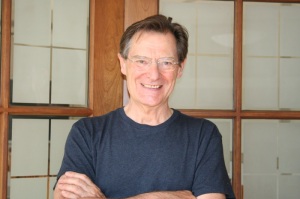Like many UK academics, I’m striking because of the astonishing attack on our pensions by Universities UK, after poor governance of our pension scheme. 
This will hugely affect our welfare in retirement – about £10,000 every year on average to academics and many professional services staff (more in my case).
We’ve asked for our views to be addressed; this strike is our last resort. At KCL, the strike will be on Feb 26-28, March 5-8, March 12-16, and March 19-20. We’re all hoping it will be over soon, of course.
Who is under threat?
Despite newspaper rhetoric, it isn’t just lecturers who are scared by the proposed changes: also threatened are the pensions of non-teaching research staff, many professional services staff, and huge numbers of potential academics (including TAs and current students!) who may not want to become academics as a result.
So, crucially, if the proposed attack on our pensions happens, many people will leave UK universities, and the education of students will suffer further.
Why are we striking?
There’s great accounts by my colleague Alice Evans in the Guardian, by Waseem Yaqoob in the LRB – see especially the paragraph beginning “The rationale for the changes is dubious” – and by David Smith on Twitter. UPDATE: The Observer puts the pension cuts in broader perspective (although I myself am not too bothered by high pay for Vice-Chancellors).
The indefatigable Mike Otsuka has carefully charted a series of errors and faulty claims by Universities UK, including the questionable role of Cambridge colleges – significantly inflating the apparent support for the move that instigated the strike – and Universities UK’s false claims and incoherent position. As he puts it, “You break it, you own it”. Mike’s work in uncovering the problems and errors deserves immense credit. It’s clear how badly managed our pensions have been (see e.g. here – and this revealing BBC article).
The National Union of Students supports the strike, as does a significant majority of students.
How will this affect my students and colleagues?
I will spend the time doing my own research at home. (Technically, I shouldn’t do work that the university pays me for, but research is the only thing that gives me a sense of well-being right now; I’m doing it for me, and so I’m in a better position to move to a university in another country if things continue to go wrong in the UK.) UPDATE: I hadn’t intended to join the picket line, but I’m wavering.
 My striking will mainly affect my admin role (Director of Education in my department).
My striking will mainly affect my admin role (Director of Education in my department).
I’m not teaching much this term, but I won’t hold office hours during the strike, read draft dissertation chapters, answer student emails (except if my personal tutees have emergencies), or answer emails involving the university or administration. A lot of meetings and emails will then have to be packed into non-strike days, further affecting students who want to meet or who need me to answer emails.
(In addition, I won’t work weekends again. I’ve just had 37 days work with only 2 days break, including a 21-day nightmare of continuous stress with no break. Not working weekends again is unrelated to the strike; I just don’t want to live like that any more! So I won’t be dealing with my email/admin backlog at weekends.)
What should students do?
Some people say that if students cross the picket-line, this disrespects striking academics and rejects our position. I don’t myself agree with that.
Personally, I would prefer students to go to what lectures and seminars they can, and complain. (The first part of this is not the official union position, of course!) UPDATE: Why? Because students are paying so much for their education, are often intellectually engaged with their courses, and don’t want their assessments to be affected (and potentially their job prospects as a result). Not going won’t make a difference, except to them, and going doesn’t show disrespect, in my view.
UPDATE: It would also be nice if students sent strikers a message of support, and showed some empathy about the scary situation we are facing.
What should Universities UK do?
Universities UK can’t win – they should get back to the negotiating table immediately. Many universities already want to do so (e.g. Newcastle, Essex, Warwick, Birkbeck).


 My striking will mainly affect my admin role (Director of Education in my department).
My striking will mainly affect my admin role (Director of Education in my department). I’ve now sent the manuscript of Methods in Analytical Political Theory to Cambridge University Press.
I’ve now sent the manuscript of Methods in Analytical Political Theory to Cambridge University Press. superb engagement from my first-year ‘Studying Politics’ students. As ever, most students took a bit of time to get the hang of this module, but especially in recent weeks, some of the ideas discussed in the seminars have been incredibly penetrating. My wonderful students are seeing issues and problems in the readings that I and my TAs haven’t spotted before, and the seminar discussions have been fascinating. I’m particularly pleased when students who start off rather shy or reticent end up making some of the most incisive contributions in discussion;
superb engagement from my first-year ‘Studying Politics’ students. As ever, most students took a bit of time to get the hang of this module, but especially in recent weeks, some of the ideas discussed in the seminars have been incredibly penetrating. My wonderful students are seeing issues and problems in the readings that I and my TAs haven’t spotted before, and the seminar discussions have been fascinating. I’m particularly pleased when students who start off rather shy or reticent end up making some of the most incisive contributions in discussion;


















